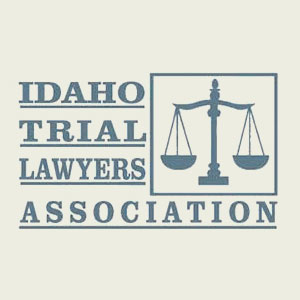FREQUENTLY ASKED PERSONAL INJURY QUESTIONS
Can a lawyer promise me I will win my case?
If a lawyer guarantees you a specific result, be wary.
Can I speak directly with a lawyer about my case?
If a lawyer doesn’t speak to you at all, or speaks to you without respect, find a new lawyer.
How long do I have to take legal action?
The amount of time you have to file a lawsuit depends greatly on the facts of your case. If your claim involves a government agency or entity, action must be taken immediately. In other situations, you may not have to take legal action for a year or more.
Your ability to be compensated may be lost forever if you fail to resolve your claim or file a lawsuit within the time limit specified by the statute of limitations.
When should I contact a lawyer?
If you wish to discuss a case or plan to pursue one, contact a lawyer immediately. It may seem as if there is plenty of time before a lawsuit must be filed, but other reasons require a lawyer to begin working on your case quickly. There may be crucial deadlines from the date of your injury or accident that must be met.
At Fulcher Koontz Law, we may need to take action within days of an accident to protect your case. It may be necessary to act fast in order to preserve important evidence, locate a witness, or investigate the scene of the accident or injury.
Should I talk with an insurance adjuster before I contact a lawyer?
No. Sometimes, an adjuster will ask to speak with you about your case and may attempt to record your conversation. Such statements with adjusters may be used against you in the future. If you must speak with an adjuster, our attorneys will discuss with you how to handle such statements, what to avoid, and appropriate cautions.
I can’t afford to hire an attorney. Do you take cases on a contingent fee basis?
Yes. At Fulcher Koontz Law, we charge a contingent fee in injury cases, which is a percentage of the total recovery we collect for you. Although costs of litigation are extra, it costs nothing up front to hire the law firm. Regardless of the time we put into your case, you will pay no attorney’s fees unless we recover for you.
What is my case worth?
There is no standard value for what an injury claim is worth. Each case is unique and must be valued individually. Factors that affect the value of a case include:
- the nature and extent of the injuries;
- the type of medical treatment received;
- the consistency and length of recovery time;
- whether the client is compliant with the treatment;
- pre-existing medical conditions;
- whether permanent impairment exists;
- lost wages and work restrictions;
- whether comparative fault can be proven; and
- whether punitive damages are appropriate.
How long will it take to resolve my case?
This depends greatly on your injuries and the amount of treatment necessary for you to heal. We work on a contingent fee basis. Therefore, it is in our interest to resolve cases as quickly as possible. We are not making money—or our clients money—if a case is just sitting on somebody’s desk. However, the Fulcher Koontz Law attorneys will never recommend that you settle your case before you have reached medical stability and we have enough information about future medical expenses, limitations, pain and suffering to present to the insurance company.
In exchange for settling with an insurance company, you must sign a “release” that states you will not attempt to recover additional money from the insurance company or defendant if your injuries turn out to be worse than expected. It is important to be certain of your injuries and expenses incurred before signing the release. Resolving a case prematurely often results in a smaller recovery.
Should I try to settle my case on my own?
Sometimes, it doesn’t make sense to hire an attorney to handle the case for you. Generally, cases involving minor injuries that heal in a short period of time (under 3 months) with fairly small medical expenses ($2,500 or less) don’t require the assistance of an attorney in order to obtain a favorable settlement.
If we feel that your case is one that you should handle on your own, even if it means no attorney’s fees for us, we will tell you. Our initial consultations are free. We will discuss whether you need an attorney, rather than trying to convince you that you must have one. We will provide you with information that will help you present, negotiate, and resolve your case yourself.
In cases involving serious injury, catastrophic injury, or wrongful death, you will receive a better result if you hire an experienced personal injury attorney. The insurance companies’ own studies revealed that, on average, accident victims recover more money if they have an attorney representing them in serious injury or wrongful death cases than if they settled the case on their own. It is critical to enlist reputable experts to provide information about causation, future expenses and limitations, pain and suffering to obtain a favorable settlement.
If you handle my case, will you give me advice about how much I should accept to settle it?
Yes. Most people do not know what amount is fair and reasonable to settle their case. We track past settlements and jury verdicts to determine what the target settlement range should be and explain to you WHY that is the case. We strive to ensure that you are well-informed in order to make decisions so you can feel confident when you sign the final release that a fair and reasonable settlement was achieved.
The insurance company says I can’t collect anything because I was partially at fault. What does that mean?
Idaho is a modified comparative negligence state. If you are found to be 50% or more liable (at fault) for causing an automobile accident, you cannot recover damages from the other driver. If you are deemed 49% or less liable, your compensation is reduced by your percentage. For example, if you suffered $100,000.00 in damages but are found to be 25% at fault, you can only recover $75,000.00. It is wise to consult with an experienced personal injury attorney about your case if there is a dispute between you and the insurance company over liability. We conduct detailed investigations, utilizing police evidence and witness testimony to determine whether you are actually liable for any part of an accident.
The person who caused my injuries did not have insurance. How can I collect anything?
Many people do not know whether they have insurance that covers them if they are injured by an uninsured (no insurance) or underinsured (not enough insurance) motorist. Our free consultation will address the issue of available insurance coverage.
How can I get medical attention if I don’t have insurance?
If you were involved in an automobile accident and have car insurance, check with your insurance agent to see if your policy has medical payment coverage. Such coverage pays for your medical expenses up to a specified amount and may enable you to get medical attention quickly.
Depending on how you were injured, there may be other insurance policies in effect that would cover the cost of your medical care. Our attorneys can also recommend reputable doctors who may be able to see you even if you have no health insurance.
What should I tell the doctor?
It is important to be truthful with your doctor. You should describe all symptoms even if you feel they may be insignificant. Do not exaggerate or contrive symptoms. Such exaggeration not only will make it more difficult for the doctor to diagnose your injuries, but will also have a harmful effect on your case and may even be considered fraud.
What damages am I entitled to recover?
Your recovery depends on the facts of your case. Damages which you might be entitled to receive are property damage, past and future medical expenses, permanent impairment, pain and suffering, lost wages, disfigurement, loss of consortium, and loss of enjoyment of life. You may also be entitled to punitive damages, depending on how your injuries occurred.
What is a wrongful death case?
If a person’s death is caused by the wrongful act or negligence of another, the personal representative of the estate can recover damages for wrongful death. These damages include pain and suffering, funeral expenses, medical bills, and the value of the deceased’s life, including the money likely to be earned during his or her lifetime, less the deductions permitted by law, loss of the enjoyment of life, and loss of consortium regarding a spouse or child.
Who receives the money recovered from a wrongful death case?
Beneficiaries, or those entitled to receive the proceeds from a wrongful death case, are based on state statutes. The decedent’s relatives including children, spouse, or parents may have claims for all, or part, of the proceeds.
What are catastrophic injuries?
A catastrophic injury is so severe that the injured person loses the use of a bodily system or function and is not expected to fully recover. The injured person may require multiple surgeries, long hospital or rehabilitative stays, and full-time nursing or assistive care. Some examples of catastrophic injuries include traumatic brain injuries, spinal cord injuries, loss of limbs, amputations, severe burns, and paralysis, including paraplegia or quadriplegia.
What type of proof is usually needed in a medical malpractice case?
A health care provider with a similar specialty in a similar community will be required to testify that the person whom you are suing was negligent.
Is an action for medical malpractice permitted if I have a bad surgical result?
Not necessarily. People often think that a bad result equals medical malpractice. However, a doctor must be at fault before you can recover. Many people have poor medical results when the doctor is not at fault. Medical malpractice is based upon the fault of the doctor, meaning he or she must either have done something wrong or failed to do something that a reasonable, qualified doctor would have done.
I fell and hurt myself at a store. Is the store responsible?
The store is only responsible if it is at fault. The store may be responsible if the store owners or employees:
- caused a dangerous condition that resulted in your injuries; or
- knew or should have known of a dangerous condition before an accident occurred and did not take proper steps to fix it.
If the store where I fell is at fault for my injuries, what should I do?
Record the names, addresses and telephone numbers of any witnesses. Ask the store manager to fill out an incident report and provide you with a signed copy. Seek medical attention right away, if necessary, and call an attorney.
What is insurance company “bad faith?”
Most people carry some kind of accident or liability insurance, such as car insurance or homeowner’s insurance. These policies are designed to cover the insured person for certain accidents or injuries described in the policy. When a person is injured and someone else is legally responsible for those injuries, it is generally true that the responsible party must compensate the injured party. The responsible party’s insurance policy is usually the source of the money paid to the injured person, at least up to the policy’s limits.
In offering policies, insurance companies promise to pay out funds, up to the policy limits, under certain conditions for any covered accidents. Insurance companies have a quasi-fiduciary duty to carry out these obligations in “good faith.” This means that an insurance company cannot put its own interests ahead of those it insures. The insurance company must fulfill its obligations under the policy promptly, unless there is an honest dispute. Examples of disputes include:
- whether the policy was in effect at the time of the accident;
- whether the accident is covered under the policy, or;
- how much money should be paid out.
If an insurance company unreasonably fails to carry out its obligations, by not attempting to settle, making arguments that it knows or should know are invalid, or by “dragging its feet” in order to force the parties to settle for less money, it is acting in “bad faith.” The insured person then has a cause of action against his or her insurance company for violation of its obligations. Accordingly, an award in excess of the policy limits will often end up being paid by the insurance company, which breached its obligations to its insured.
Let’s Discuss the Results You Want to Achieve
If you have suffered injuries and financial loss due to the negligent actions of another, contact the personal injury attorneys at FULCHER KOONTZ LAW PLLC. Call us at (208) 888-9980 or send us an e-mail to schedule a free initial consultation about your case.








